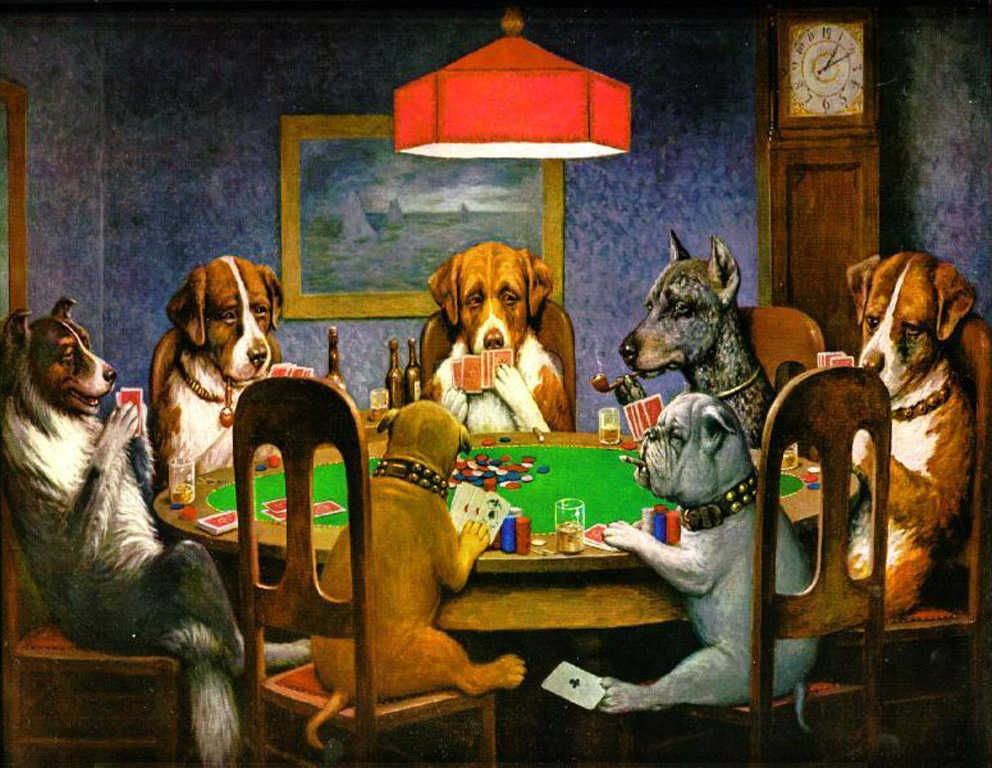
In poker, suppose you’re dealt a pair. Is the probability that your opponent also holds a pair higher, lower, or the same as it would be if you held nothing?
|
SelectClick for Answer |
It’s higher. If you’re holding a pair then you’ve left more pair combinations in the remaining deck than if you were holding a non-pair.
A simple way to see this is to consider a deck of only 8 cards, four 2s and four 3s. If we remove a 2 and a 3, the remaining deck of 6 cards contains three pair combinations of 2s and three pair combinations of 3s, for a total of 6. But if we remove a pair of 2s, the remaining deck contains 7 pair combinations, one pair combination of 2s and six pair combinations of 3s.
Here’s a more rigorous analysis of the effect in a real game — it’s small, but it’s there.
(Thanks, John.)
|

